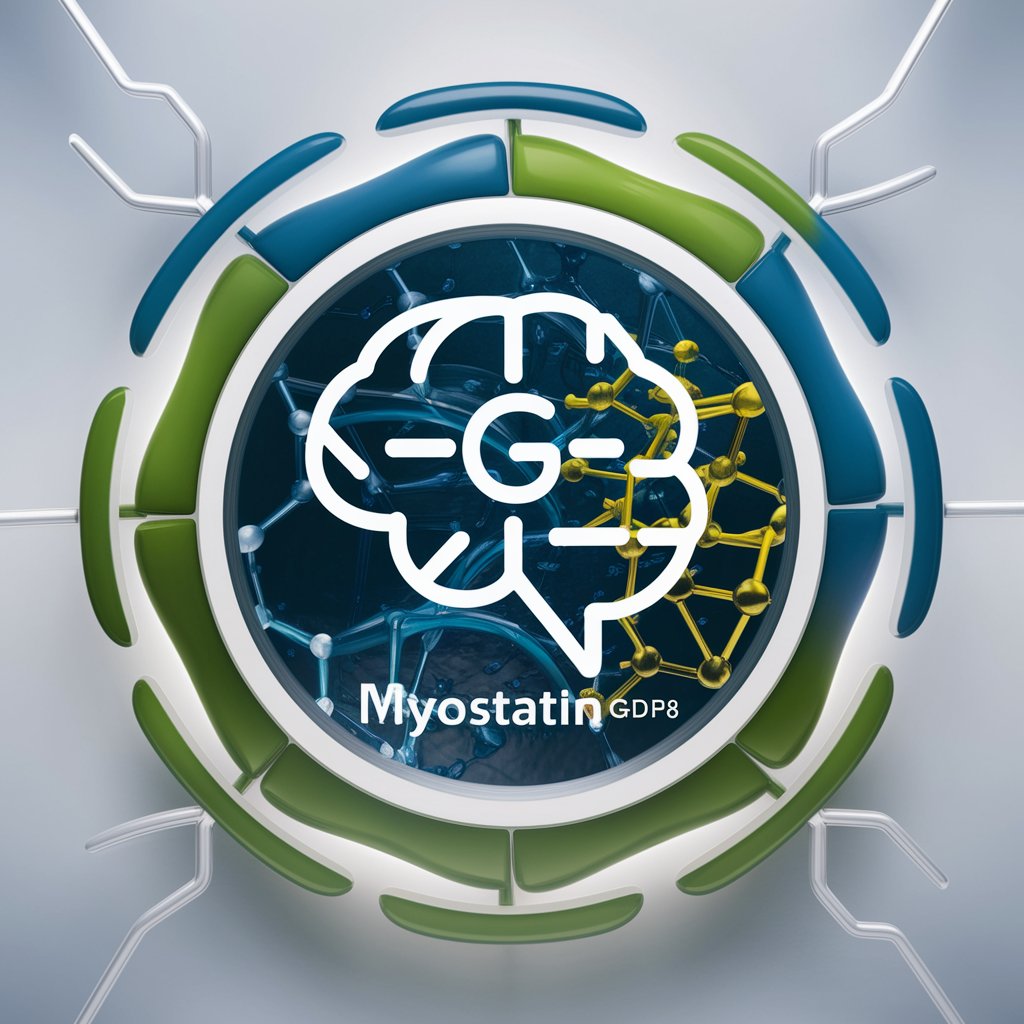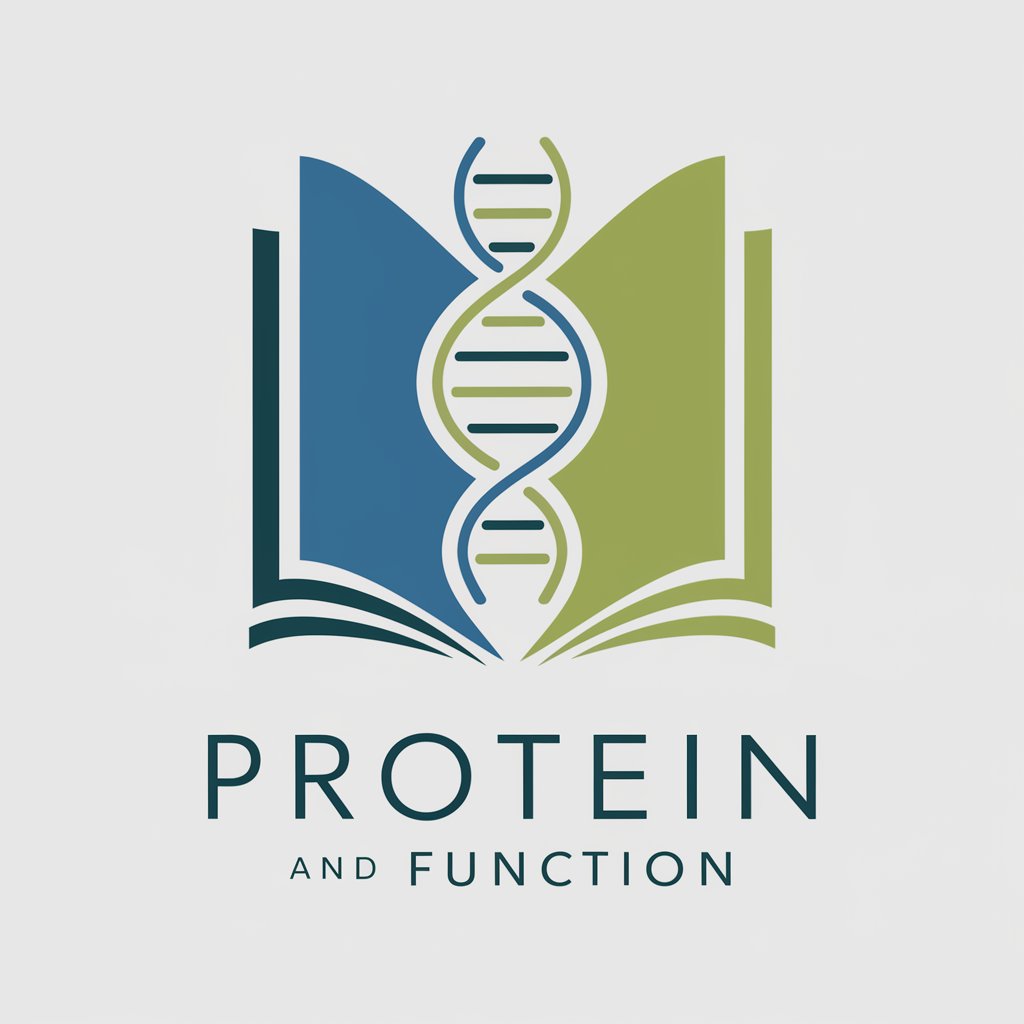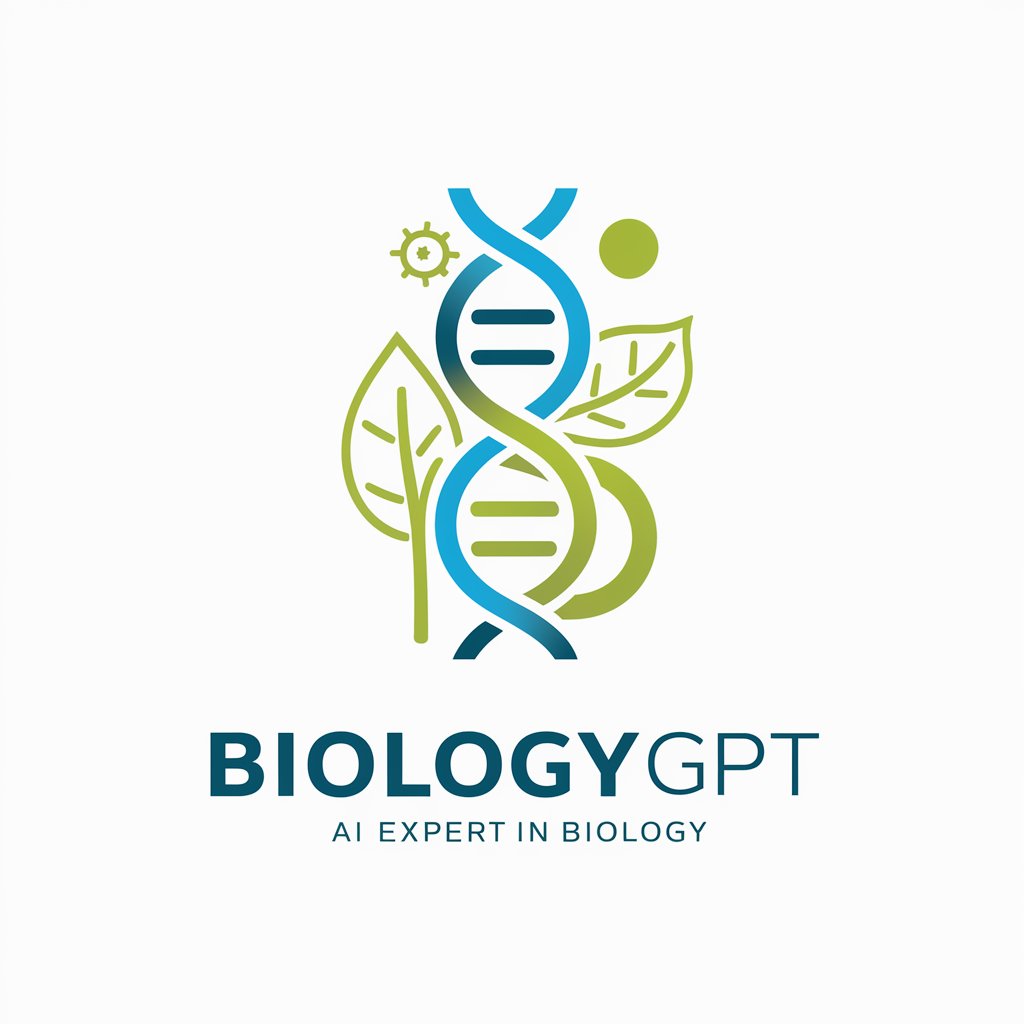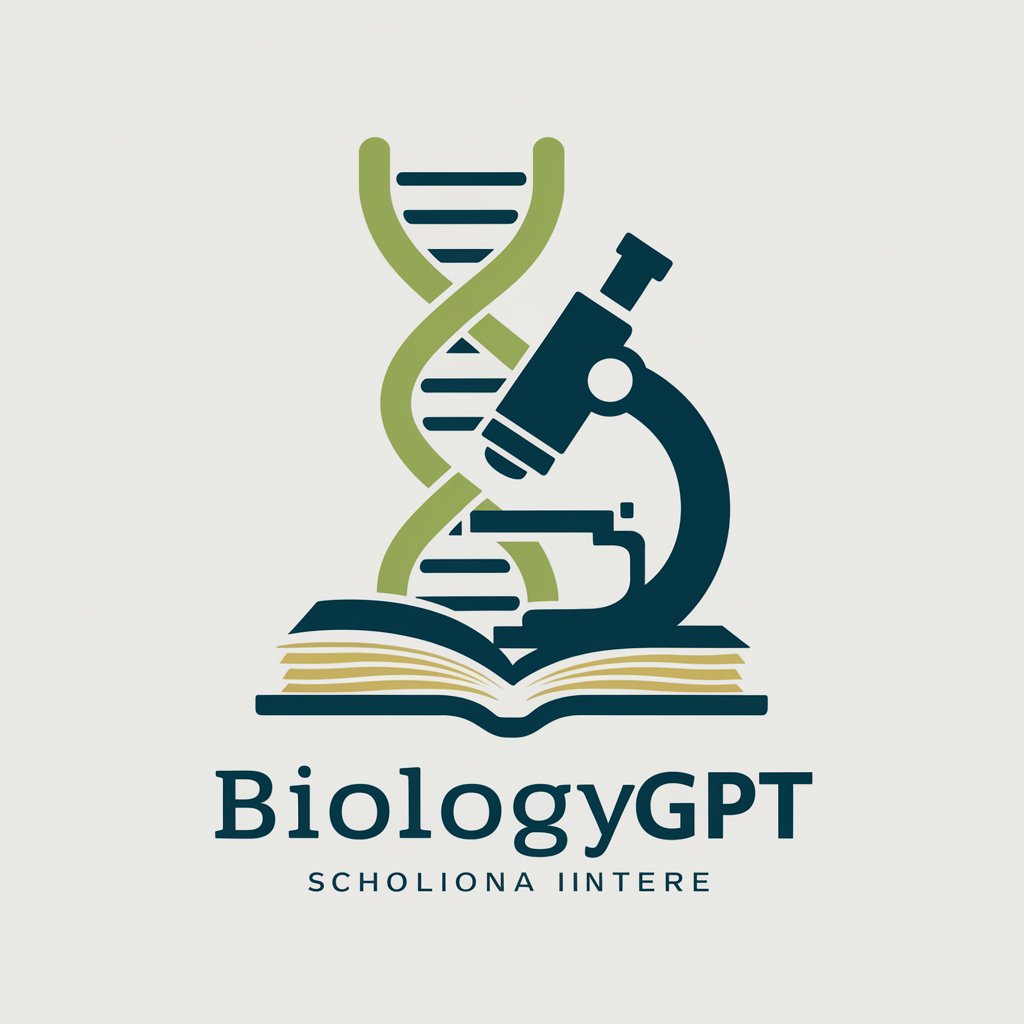
Myostatin Protein Expert GPT - Myostatin Protein Insights

Welcome to Myostatin Protein Expert GPT!
Unlocking the Secrets of Muscle Growth
Explain the significance of myostatin in muscle development...
How does the structure of myostatin influence its function...
Describe the process of analyzing myostatin protein structures...
What are the medical implications of myostatin protein research...
Get Embed Code
Introduction to Myostatin Protein Expert GPT
Myostatin Protein Expert GPT is a specialized AI designed to offer in-depth insights and analyses concerning the myostatin protein, also known as Growth Differentiation Factor 8 (GDF8). This tool is capable of interpreting complex scientific data from various protein structure validation reports, aiming to provide researchers, students, and enthusiasts with comprehensive understanding of myostatin's structure, functions, and implications in biological and medical contexts. For example, utilizing the AI's capabilities, one could dissect the structural nuances of myostatin in different species, understand the effects of specific mutations on its function, or explore its role in muscle growth regulation and related disorders. Powered by ChatGPT-4o。

Main Functions of Myostatin Protein Expert GPT
Analysis of Protein Structure Validation Reports
Example
Interpreting data from a report detailing the crystal structure of a myostatin inhibitor complex, providing insights into how certain inhibitors can prevent myostatin from binding to its receptor.
Scenario
Researchers studying potential therapeutic agents for muscle wasting diseases use the AI to understand how different mutations in myostatin or its inhibitors affect its function and potential drug efficacy.
Mutation Impact Analysis
Example
Assessing the effects of specific mutations on myostatin's structure and functionality, including changes in its ability to bind to receptors or its overall stability.
Scenario
Geneticists investigating the correlation between variations in the GDF8 gene and incidences of muscular hypertrophy in livestock utilize the tool to predict the phenotypical outcomes of these genetic variations.
Comparative Analysis of Myostatin across Species
Example
Comparing the structural differences and similarities of myostatin proteins in humans, mice, and other animals to study evolutionary conservation and functional divergence.
Scenario
Evolutionary biologists use the AI to explore how myostatin has evolved across different species, helping to pinpoint its role in muscle development and metabolic regulation.
Ideal Users of Myostatin Protein Expert GPT Services
Biomedical Researchers
Individuals engaged in studying muscle biology, growth regulation, and related disorders. They benefit from in-depth analyses of myostatin's role in muscle development, potential therapeutic targets for muscle degenerative diseases, and insights into genetic factors influencing muscle mass.
Geneticists
Professionals focusing on genetic variations impacting muscle growth and function, including mutations in the GDF8 gene. The tool aids in correlating specific genetic changes with phenotypical traits observed in both humans and animals.
Pharmaceutical Researchers
Experts involved in the development of drugs targeting the myostatin pathway to treat muscle-wasting conditions. Access to detailed structural and functional analyses assists in the design and optimization of myostatin inhibitors.

How to Use Myostatin Protein Expert GPT
Start without login
Begin by visiting yeschat.ai to access a free trial without the need for login or subscription to ChatGPT Plus.
Identify your query
Clearly define your question or the information you're seeking about the myostatin protein, including any specific details or contexts.
Provide context
For complex queries or analysis, provide relevant context or data, such as protein structures, to ensure precise and comprehensive answers.
Utilize tools
Take advantage of the integrated tools for visual representation or data analysis to enhance your understanding of the myostatin protein's structure and functions.
Explore further
Based on the insights gained, consider exploring related proteins, mutations, or inhibition mechanisms to broaden your research scope.
Try other advanced and practical GPTs
Protein and Function
Deciphering Protein Mysteries with AI

Protein Pal
Unravel the world of proteins with AI

Protein Chef
Craft Your Strength with AI-Powered Nutrition

Protein Pro
Elevate Your Diet with AI-Powered Protein Insights

Protein Buddy
AI-powered Nutritional Assistant

Protein Pal
Empowering Your Protein Journey with AI

Protein Chef
Crafting Protein-Rich Meals with AI

Protein Tracker
AI-powered dietary tracking at your fingertips.

Protein Tracker
Optimize your diet with AI-powered protein tracking.

New Movies
Explore Cinema with AI

New Yorkers
Chat New York Style, Powered by AI

New
Empower Your Words with AI

Frequently Asked Questions about Myostatin Protein Expert GPT
What is myostatin protein, and why is it important?
Myostatin, also known as growth differentiation factor 8 (GDF8), is a protein that inhibits muscle growth. It plays a crucial role in regulating muscle mass in mammals, making its study vital for understanding muscle development, diseases affecting muscle, and potential therapeutic targets for muscle wasting conditions.
How can Myostatin Protein Expert GPT help in academic research?
This tool assists researchers by providing detailed analyses of myostatin protein structures, comparisons between different mutations, insights into the inhibition mechanisms, and implications for genetic disorders or potential therapeutic approaches, all of which are critical for academic research and publication.
Can this tool analyze specific mutations in the myostatin gene?
Yes, it can analyze specific mutations in the myostatin gene, providing insights into how these mutations affect the protein's structure, function, and interaction with inhibitors or receptors, which is essential for genetic studies and developing gene therapy strategies.
Is it possible to visualize the myostatin protein structure with this tool?
Absolutely, the tool integrates with visual representation capabilities to offer detailed views of the myostatin protein structure, including 3D models that highlight important features like binding sites, mutations, and the effects of inhibitors.
How does Myostatin Protein Expert GPT support drug discovery?
It supports drug discovery by providing molecular insights into how myostatin interacts with various molecules, identifying potential inhibition mechanisms, and predicting the efficacy of drug candidates, which are crucial steps in the development of new therapies for muscle-related conditions.






